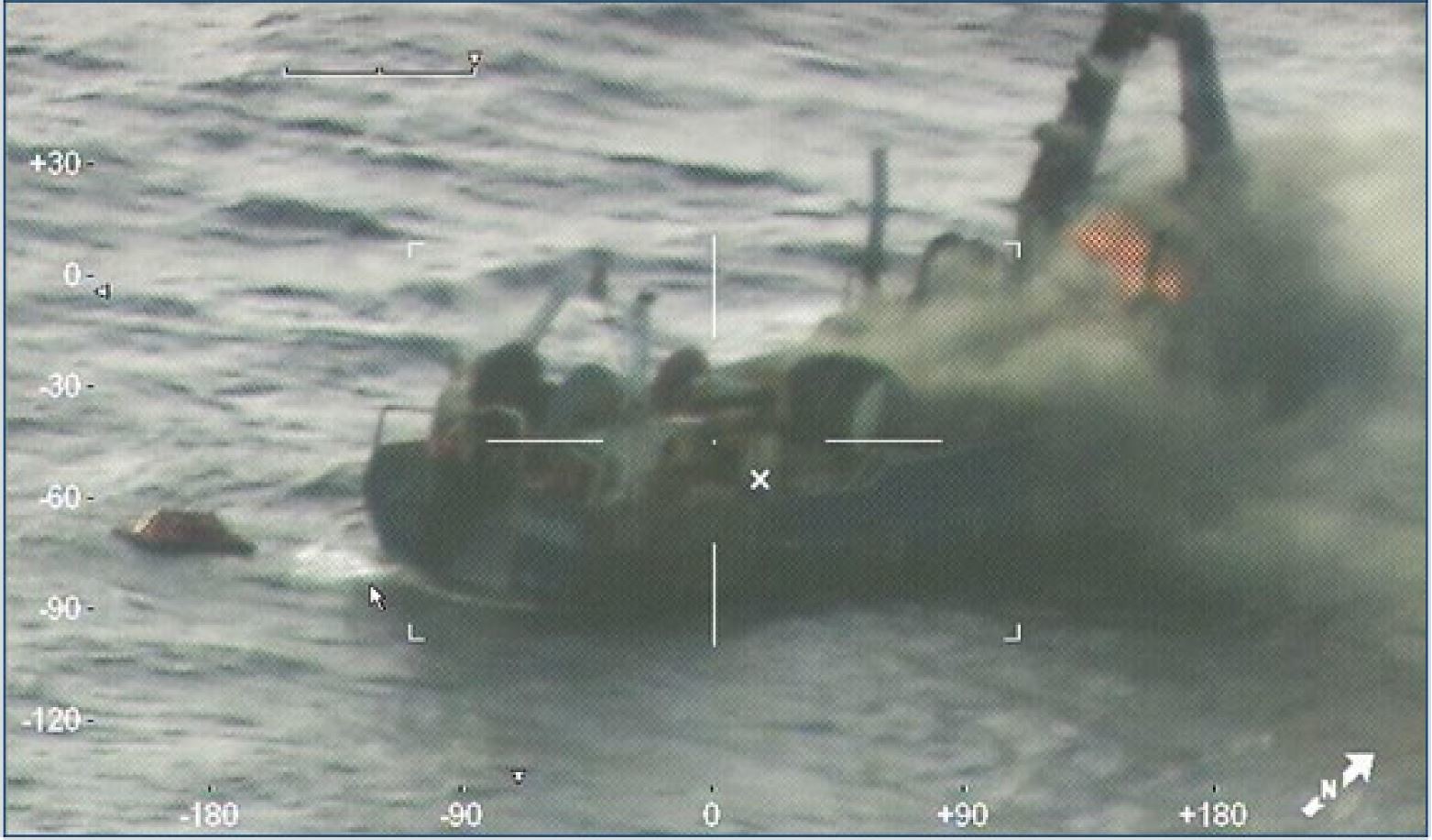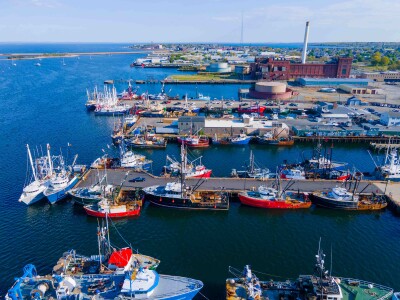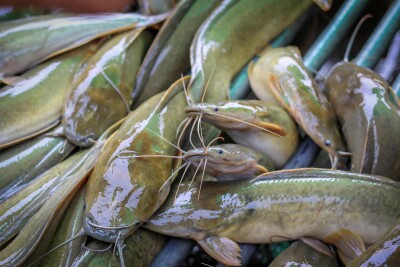A hydraulic hose failure triggered an engine room fire that engulfed a groundfish trawler 80 miles off Cape Cod in spring 2021, according to a newly released report from the National Transportation Safety Board.
The 99.8-foot steel stern trawler Nobska and its crew of five were fishing for haddock April 30, 2021 when the crew spotted and quickly extinguished a small fire on the main engine exhaust pipe. They located a ruptured hydraulic hose in the pipe/hose tunnel between the engine room and wheelhouse, and replaced it.
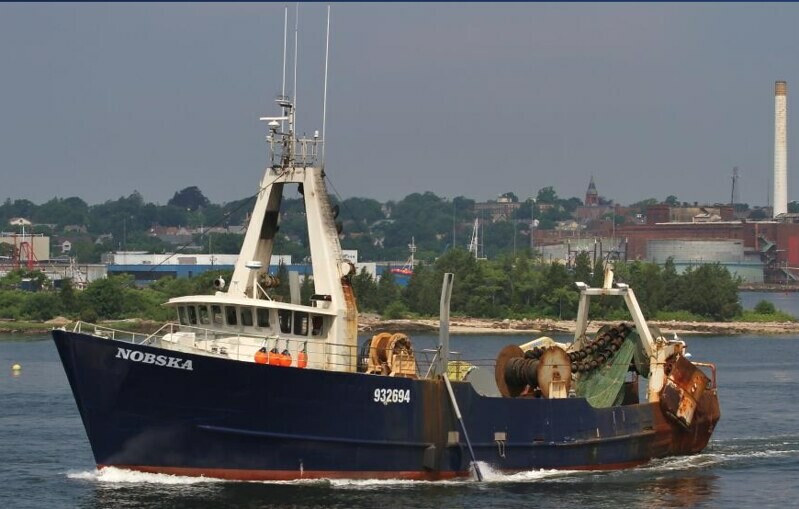
Thinking the hazard had been resolved, the captain and crew resumed fishing for four hours.
They were preparing to haul back around 5 p.m. when the captain, at the winch controls in the wheelhouse, saw black smoke coming out from under the console.
He stepped out of the wheelhouse to warn the crew, and within seconds the wheelhouse was engulfed in flames, spreading quickly through the entire forward section.
On the aft main deck, the crew used two handheld extinguishers and pitched a grenade-style fire extinguisher through a portside hatch into the engine room.
But the fire continued and four remaining fire extinguishers on board could not be reached.
The crew got immersion suits, a life raft and emergency position indicating radio beacon ready to abandon ship, but could not reach the VHF radio in the burning wheelhouse to broadcast a mayday call.
Gathered at the stern, the crew donned their suits, activated the EPIRB at 5:09 p.m. and deployed the life raft, tying the painter to the vessel.
The Coast Guard First District command center in Boston received the EPIRB notification and called for the launch of an HC-144 fixed-wing aircraft and a MH-60T helicopter from Air Station Cape Cod, arriving on scene at 6:25 p.m. and 6:28 p.m., respectively.
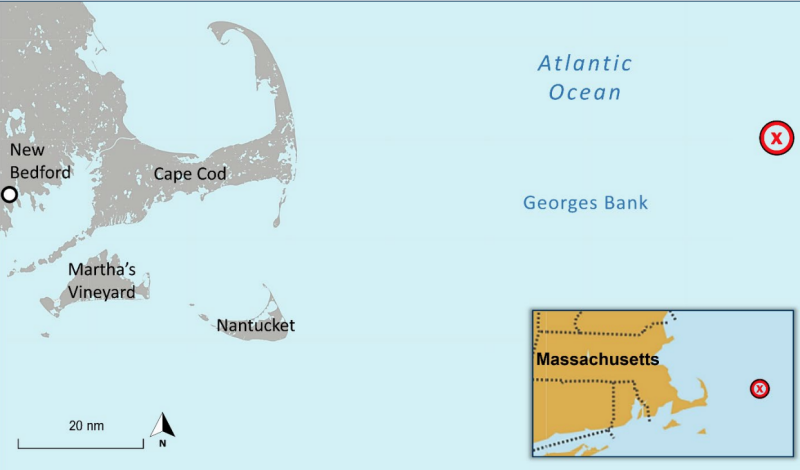
The aircrew of the HC-144 aircraft confirmed that the five crewmembers were on the stern of the vessel and that the Nobska was engulfed in flames with smoke billowing from the vessel’s bow to about midships.
The helicopter’s rescue swimmer had the crewmembers enter the water, where they were hoisted to safety and departed on the helicopter at 7:08 p.m.
The fire burned out after two days, and the Nobska was towed to New Bedford May 4, where investigators assessed the damage – determined to be a total loss of $2.4 million.
The NTSB report notes that “a routine survey of the Nobska conducted a week before the fire on April 23 reported that the engine room was ‘very clean and well maintained’ and the hydraulically operated equipment was ‘in excellent working order.’”
The NTSB concluded “the second fire resulted in extensive damage throughout the vessel and was likely the result of another hydraulic hose leak, when atomized fluid contacted a hot surface, most likely the exposed main engine exhaust pipe, and flashed into a fire.”
The report names the probable cause as a “failure of a hydraulic hose within the engine room that allowed hydraulic fluid to spray onto a hot surface, likely the exposed main engine exhaust pipe. Contributing to the failure of the hydraulic hose was possible heat damage from a fire that occurred earlier in the day.
“The pipe/hose tunnel on board the Nobska, which extended from the engine room up two decks to the wheelhouse, did not have any insulation, pipe/cable fire stops, or other barriers to prevent the passage of smoke, heat, and fire – known as structural fire protection,” the report said.
“This type of unprotected vertical tunnel has the potential to provide a pathway for fires to spread quickly outside of the space of origination. Vessel owners and operators should identify such openings between decks and ensure they are structurally fire protected to prevent the spread of a fire.”





